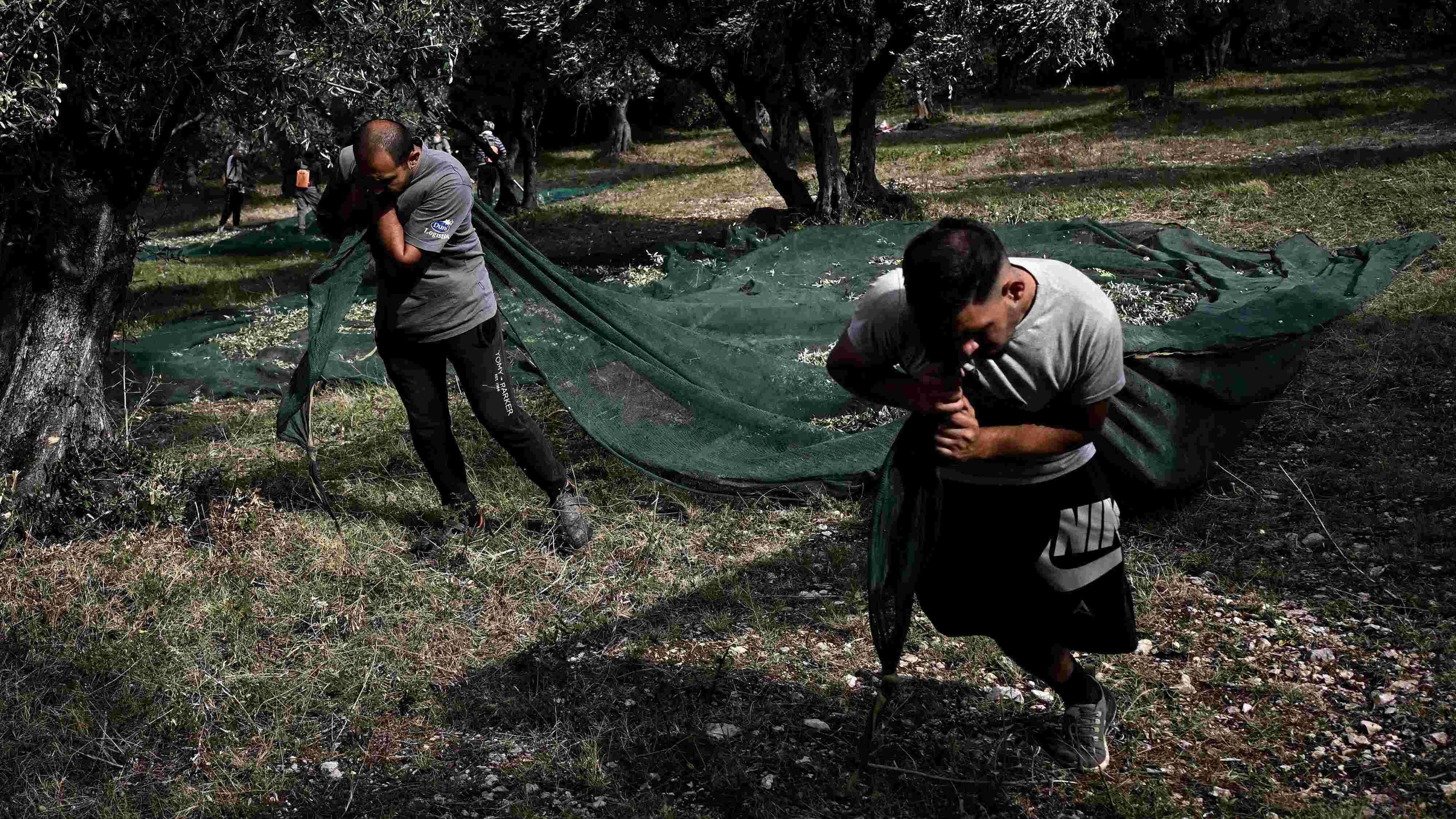
At this time of year, the trees on Alan Risolo's land in central Italy should be groaning with olives. But extreme weather blamed on climate change has ruined his harvest.
"Production has fallen by 80 percent," said the 43-year-old farmer from Sabina, north of Rome.
Known since Roman times for its olive groves, this region boasts trees said to be hundreds, even thousands, of years old.
But changing weather patterns are proving hugely challenging.
"For several years, our land has really suffered from climate change," Risolo told AFP, citing torrential rain contrasted with "long periods of heat lasting into the autumn."
Normally, he and his workers would be in coats for the autumn harvest, when they use electric devices to shake the trees so the fruit falls onto tarpaulins below.
Earlier this week they were collecting the olives while wearing T-shirts, as the thermostat hit 29 degrees Celsius.
The cut in production has affected most of the central and northern regions of Italy, the world's second-largest producer of olive oil after Spain.
This year national production is estimated to be 290,000 tons, down from 315,000 in 2022 and the lowest figure in the last four years.
When harvested, Risolo's olives go to the "OP Latium" mill, where they and others from the area are washed, sorted and then crushed into a greenish paste from which the precious extra virgin oil is extracted.
The smell is glorious, and the equipment is state-of-the-art. But all the technology in the world cannot squeeze oil from olives that don't exist.
Agronomist Stefano Cifeca confirmed this year's meagre harvest.
"Unfortunately this year climate change meant that in April and May (the flowering months)... we had heavy rainfall that washed away the pollen," hindering fertilisation and the development of olives, he said.
The stakes are high.
Italy has 150 million olive trees representing three billion euros ($3.19 billion) in annual turnover and supporting 400,000 businesses.
The risk is that some farmers switch to other crops, although Cifeca insists this is not yet necessary.
"Luckily the olive tree is a very robust plant that can adapt to changes in climate and different territories," he said.
Despite the poor performance in the centre and north, Italian production this year was saved by its southern regions.
Farmers have also been helped by rising prices in the global market for olive oil, as production in Spain, which normally produces half of the world's supply, has also suffered.
Production in Spain fell 34 percent compared to the average over the last four years due to a prolonged drought.
But the rising prices are bad news for consumers - including in Italy, which consumes 15 percent of olive oil produced worldwide.